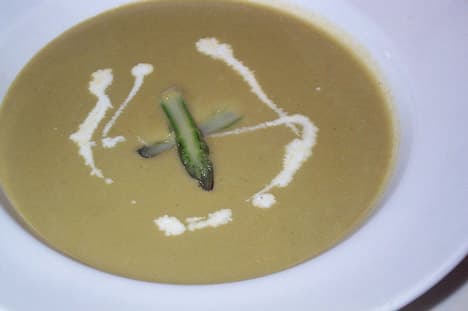Three deaths traced to new listeria outbreak

The new outbreak stems from soups served at two hospitals and is not connected to the deli meat outbreak that has claimed 16 lives.
Three people have died from listeria-infested asparagus soup at Odense University Hospital. The deaths are a result of a new listeria outbreak and are not related to the one that has been traced to the deli meat rullepølse, which has claimed 16 lives. “There are two different outbreaks and they are not connected. In the asparagus soup, it is a completely different strain of listeria than in the rullepølse outbreak. The deaths we have listed on our website are only from the rullepølse outbreak,” Tyra Grove Krause of the Danish State Serum Institute (SSI) told Ritzau news agency. See also: 'Serious mistakes' in listeria outbreak The asparagus soup outbreak has sickened five patients over the past six months. Three of the infections proved fatal, with the most recent death in April. A recent check by the Danish Food and Veterinary Service (Fødevarestyrelsen) found traces of listeria in three soups at Odense University Hospital and Svendborg Hospital. Listeria was also found in meatballs served with the soups. The infected asparagus soup was served to patients through September 21st. SSI reported on Wednesday that the rullepølse outbreak, which was traced to the food company Jørn A Rullepølser, is believed to have abated. SSI has not found any symptoms of infection for over 14 days. In all, 38 people were infected through the rullepølse outbreak, with 16 dying within 30 days of being infected. The last recorded death was on August 25th.
Comments
See Also
Three people have died from listeria-infested asparagus soup at Odense University Hospital.
The deaths are a result of a new listeria outbreak and are not related to the one that has been traced to the deli meat rullepølse, which has claimed 16 lives.
“There are two different outbreaks and they are not connected. In the asparagus soup, it is a completely different strain of listeria than in the rullepølse outbreak. The deaths we have listed on our website are only from the rullepølse outbreak,” Tyra Grove Krause of the Danish State Serum Institute (SSI) told Ritzau news agency.
See also: 'Serious mistakes' in listeria outbreak
The asparagus soup outbreak has sickened five patients over the past six months. Three of the infections proved fatal, with the most recent death in April.
A recent check by the Danish Food and Veterinary Service (Fødevarestyrelsen) found traces of listeria in three soups at Odense University Hospital and Svendborg Hospital. Listeria was also found in meatballs served with the soups.
The infected asparagus soup was served to patients through September 21st.
SSI reported on Wednesday that the rullepølse outbreak, which was traced to the food company Jørn A Rullepølser, is believed to have abated. SSI has not found any symptoms of infection for over 14 days.
In all, 38 people were infected through the rullepølse outbreak, with 16 dying within 30 days of being infected. The last recorded death was on August 25th.
Join the conversation in our comments section below. Share your own views and experience and if you have a question or suggestion for our journalists then email us at [email protected].
Please keep comments civil, constructive and on topic – and make sure to read our terms of use before getting involved.
Please log in here to leave a comment.